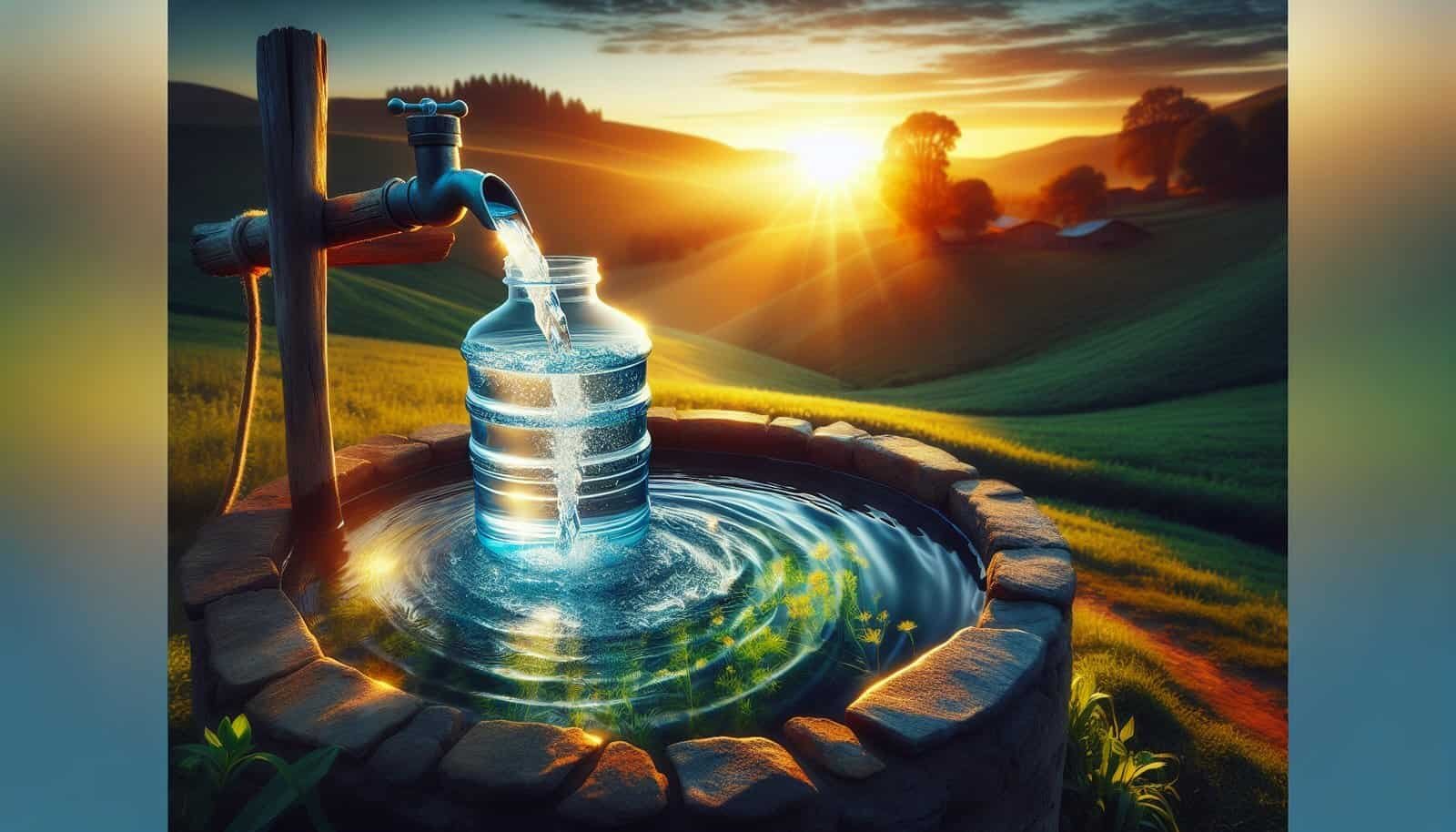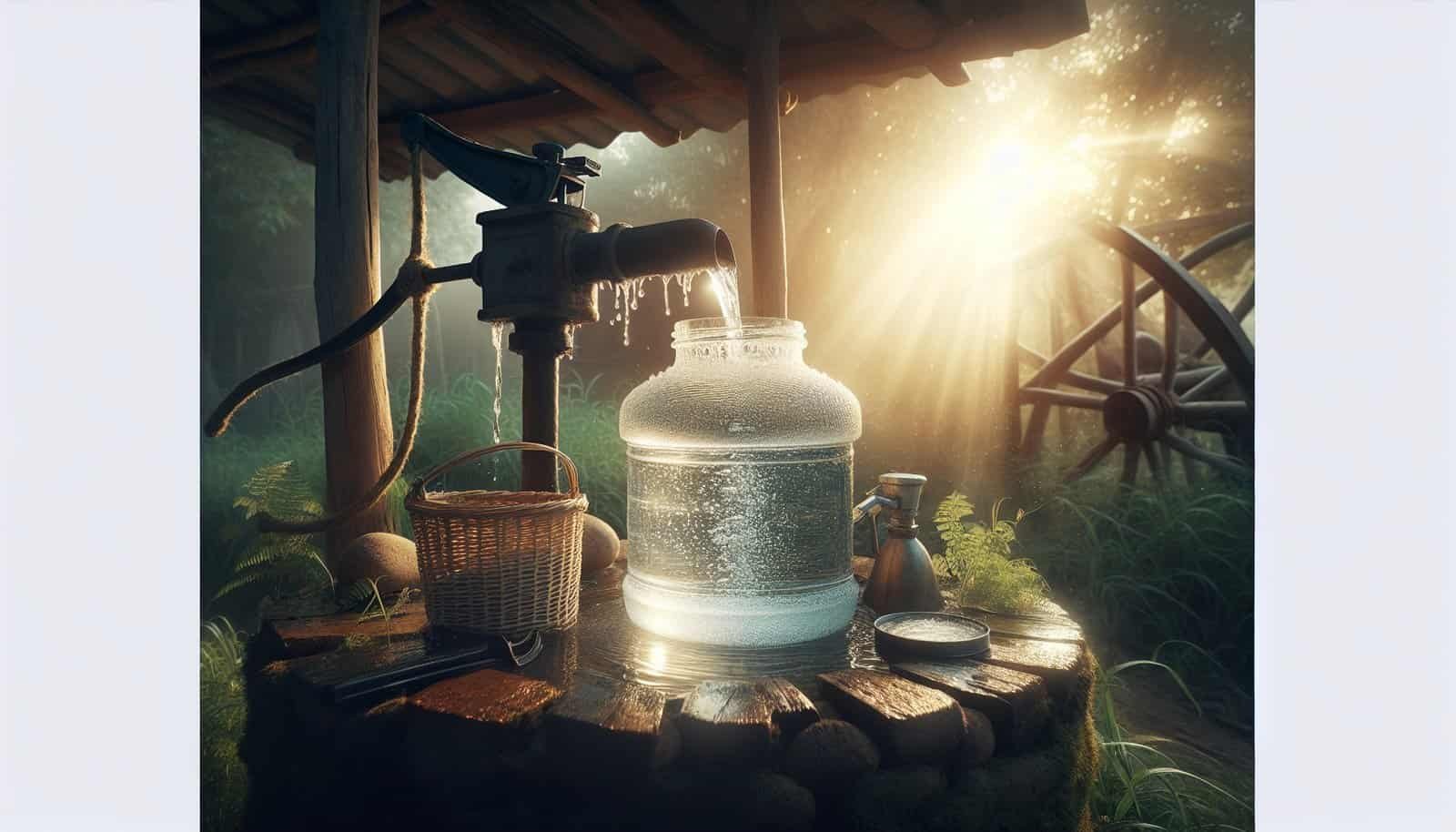Have you ever wondered whether you need to filter all your water if you have a well? It’s a good question and one that many well owners might ask themselves when they think about their water quality. Having well water can be a fantastic option, providing you with access to an independent source of water. However, it also brings some responsibilities, such as ensuring the water is safe and healthy for your household.
In this guide, we’ll discuss the ins and outs of well water, the importance of filtering, and how you can ensure your water is as safe and clean as possible. We aim to make this informative yet easy to follow, giving you clear answers and actionable advice. Let’s take a journey through the world of well water and see if filtration is necessary for you.

Understanding Well Water
Before diving into filtration specifics, it’s essential to grasp what well water is and how it differs from municipally supplied water. Essentially, well water is groundwater sourced directly from an underground aquifer. These aquifers are natural reservoirs formed by water seeping through the earth and collecting in permeable rock beds or soil.
The Pros and Cons of Well Water
Well water has its advantages and disadvantages, just like anything else.
Pros
- Independence: One significant advantage is independence from municipal water supplies. You’re not subject to city water bills or potential restrictions.
- Taste: Many people find well water tastes better than treated city water, often described as fresher and more natural.
- Minerals: Groundwater typically contains natural minerals that are beneficial to health, such as calcium and magnesium.
Cons
| Cons | Description |
|---|---|
| Contamination Risk | Well water can be susceptible to contamination from various sources like agricultural runoff, septic systems, or natural occurring substances like arsenic. |
| Maintenance | You are responsible for maintaining your well, including routine testing and addressing any issues that arise. |
| Complex Setup | Wells can be complex to install and maintain, requiring technical knowledge or professional assistance. |
The Importance of Testing Your Well Water
One crucial element in maintaining a well is regular water testing. This helps ensure the water’s safety and quality.
Testing Frequency
Experts generally recommend testing your well water at least once a year. However, you might consider more frequent testing if you notice changes in water taste, color, or if your area has experienced significant environmental changes like floods or droughts.
Parameters to Test
When testing your well water, there are several parameters you should consider. Here’s a brief list:
- Bacteria: Test for coliform bacteria, which are commonly found in human and animal waste.
- Nitrates and Nitrites: Often related to agricultural runoff and can be harmful at high levels.
- pH Levels: The acidity or alkalinity of water which can affect plumbing and water quality.
- Heavy Metals: Substances like lead, arsenic, and mercury, which are harmful even in small amounts.
- Hardness Minerals: Calcium and magnesium levels can influence the water’s feel and effect on appliances.

Why Filter Your Well Water?
You might be thinking, if well water is often touted as fresh and natural, why do you need to filter it? Well, even though it’s free from municipal chemical additives like chlorine, various factors might necessitate filtration. Let’s uncover these reasons together.
Common Well Water Contaminants
There are various contaminants that could infiltrate your well water:
- Biological Contaminants: Such as bacteria and viruses, which can lead to health issues if consumed.
- Chemical Contaminants: This includes pesticides, herbicides, and industrial chemicals that might seep into groundwater.
- Physical Contaminants: Sediments or organic materials that can cause cloudiness or affect water taste and color.
- Radiological Contaminants: Radon or other radioactive elements could naturally occur in some areas.
Benefits of Filtering
Filtering your water, even if you’re using a private well, provides peace of mind and improves water quality. Here are a few benefits:
- Improved Taste and Odor: Filtration can help enhance the taste and smell of your water, removing any unpleasant odors.
- Safety: It assures you that any potentially harmful substances have been filtered out.
- Protects Health: Filters can remove harmful bacteria, viruses, and heavy metals that pose serious health risks.
- Preserves Appliances: Prevents buildup of minerals, helping extend the life of your plumbing and appliances.

Types of Water Filters for Well Water
There are several types of filters available that can effectively purify your well water. Knowing the differences can help you make the right choice for your household.
Whole House Water Filters
These are comprehensive filtering systems treating all water entering your home. This is beneficial for complete protection, ensuring every tap dispenses clean water.
Key Features:
- Multi-Stage Filtration: Often includes stages for sediment removal, carbon filtering for chemicals, and UV light for bacterial control.
- Convenience: Once installed, it requires minimal maintenance compared to smaller, point-of-use filters.
Point-of-Use Filters
These filters are installed at specific taps or fixtures, like on a kitchen faucet or refrigerator water dispenser, treating the water just before you use it.
Key Features:
- Targeted Filtration: Focuses on water you use for drinking and cooking.
- Cost-Effective: Typically lower in cost compared to whole house systems.
Sediment Filters
These filters are designed to capture physical impurities like dirt, sand, and rust particles.
Key Features:
- Basic Filtration: Often used as a pre-filter in a multi-stage system.
- Protects Other Filters: By removing larger particles, it prolongs the life of more expensive filters.
Reverse Osmosis Systems
Highly effective systems that use a semipermeable membrane to remove a high percentage of water contaminants.
Key Features:
- Thorough Filtration: Capable of removing dissolved salts, lead, nitrates, and other harmful substances.
- Multi-Filter Layers: Often includes additional carbon filters and remineralization options to improve taste.
Ultraviolet Light Filters
UV filters excel at disinfecting water by inactivating bacteria and viruses.
Key Features:
- Chemical-Free Disinfection: An excellent option for those concerned about using chemicals in their water.
- Efficiency: Quickly treats water passing through the light chamber.

Best Practices for Maintaining Your Water Filtration System
Once you’ve chosen and installed your water filter, regular maintenance is crucial to ensure its effectiveness.
Regular Filter Replacement
Replacing filters according to manufacturers’ instructions ensures effective contaminant removal. Frequency can vary depending on water quality and filter type.
System Flushing
Periodic whole-system flushing helps to prevent clogs and ensures water quality. This may involve flushing out water lines and cleaning any accumulated sediments or biofilms.
Scheduled Inspections
Scheduling regular inspections by a professional ensures that every part of your water system, from the well pump to filtration units, is correctly functioning and well-maintained.

Concluding Thoughts
So, should you filter all your water if you have a well? The decision ultimately depends on your specific water quality and personal preferences. Filtering well water can enhance its taste, protect your health, and ensure safety by removing unwanted contaminants. Regular testing and a well-chosen filtration system tailored to address specific water concerns are vital steps in enjoying the benefits of your well water while maintaining peace of mind. Taking these measures helps you make well-informed decisions about filtering, keeping your water clean, tasty, and safe for everyone in your household.
